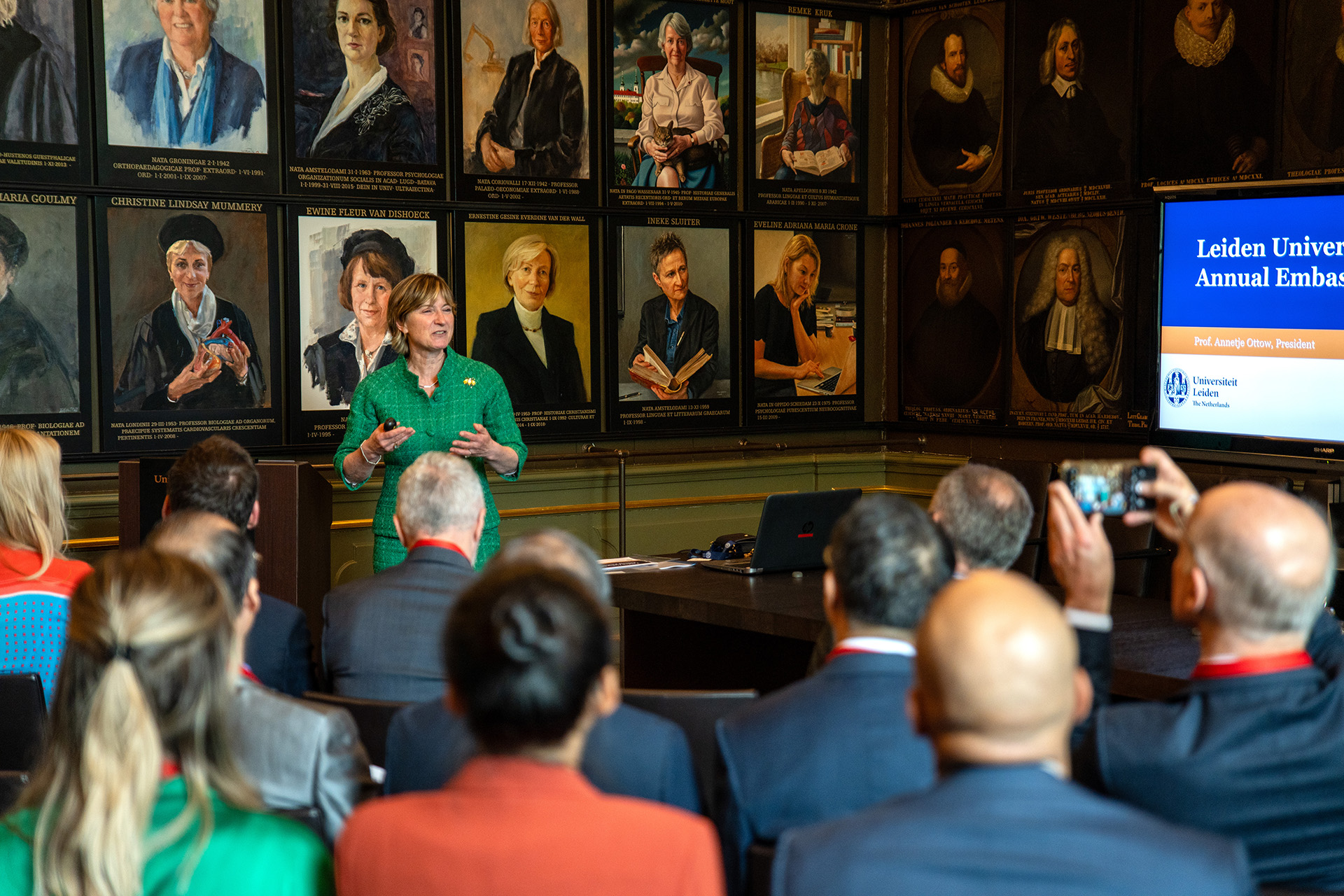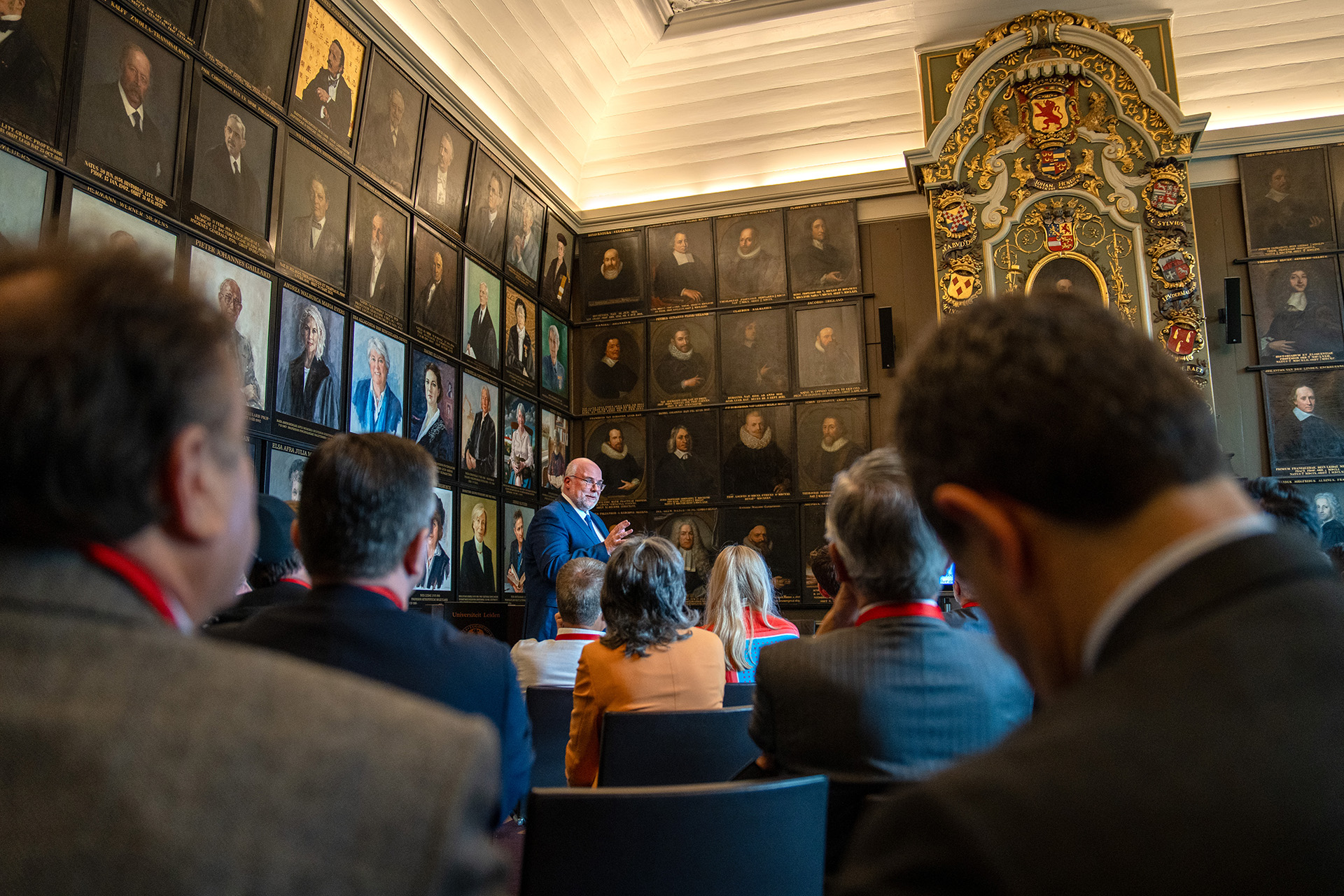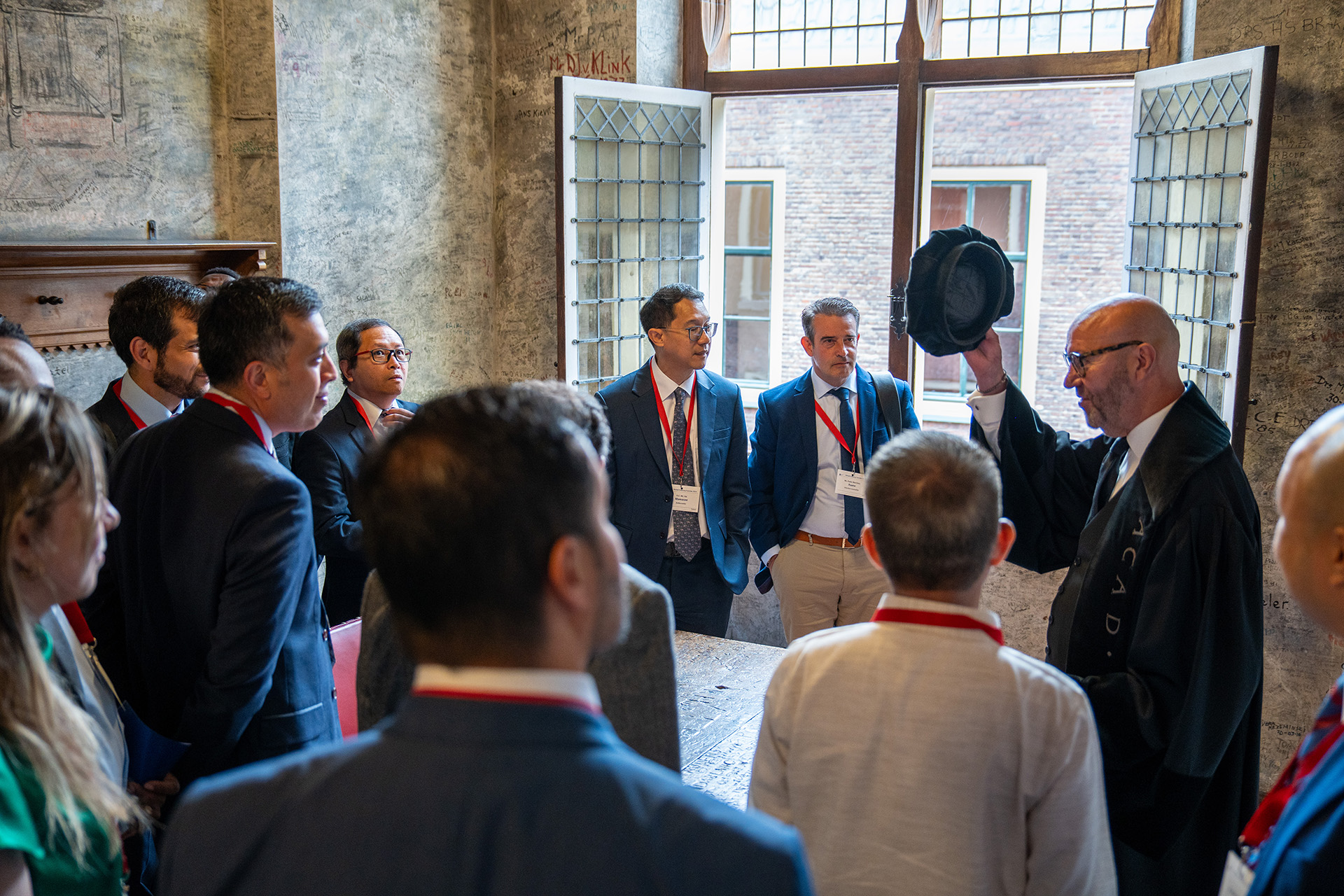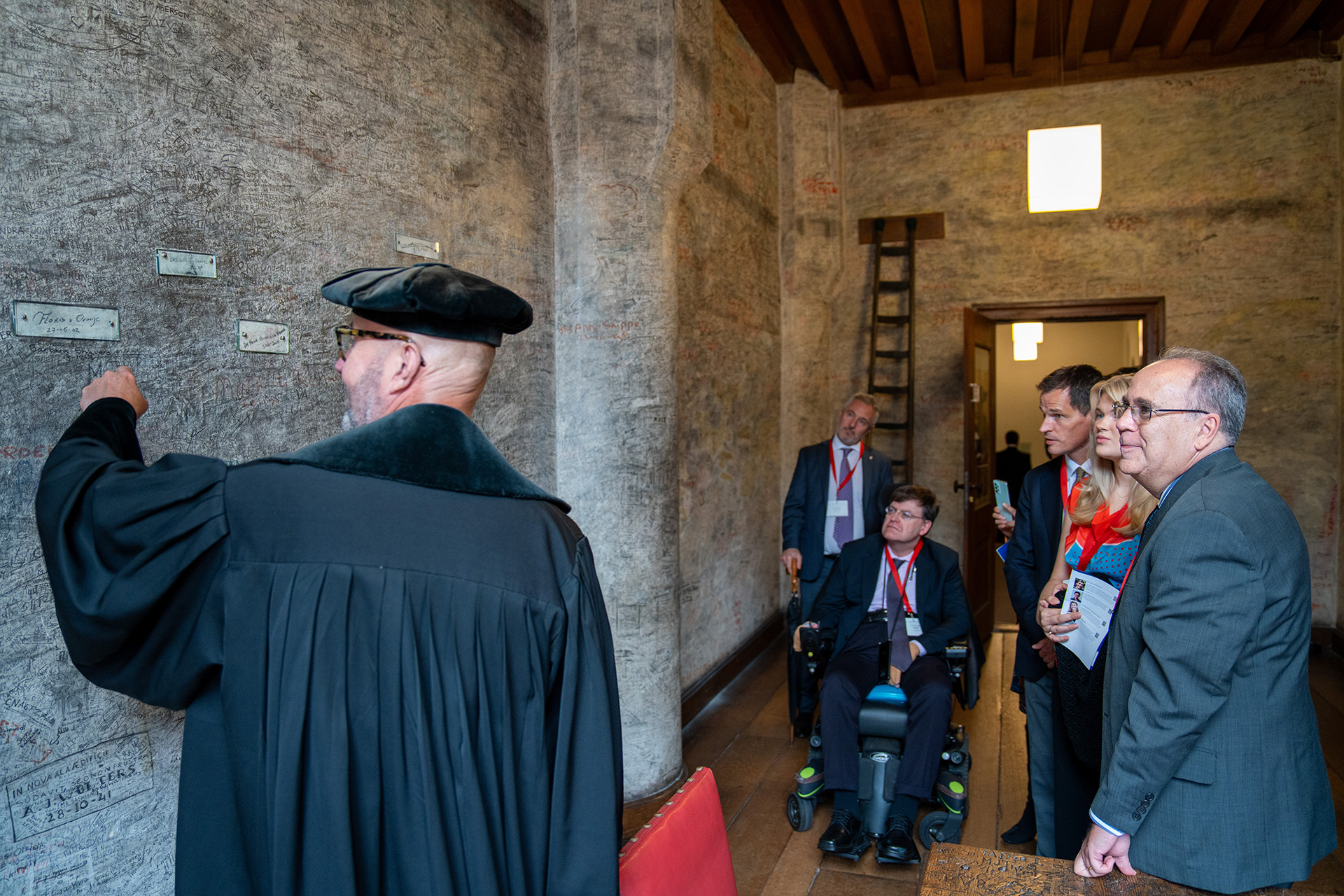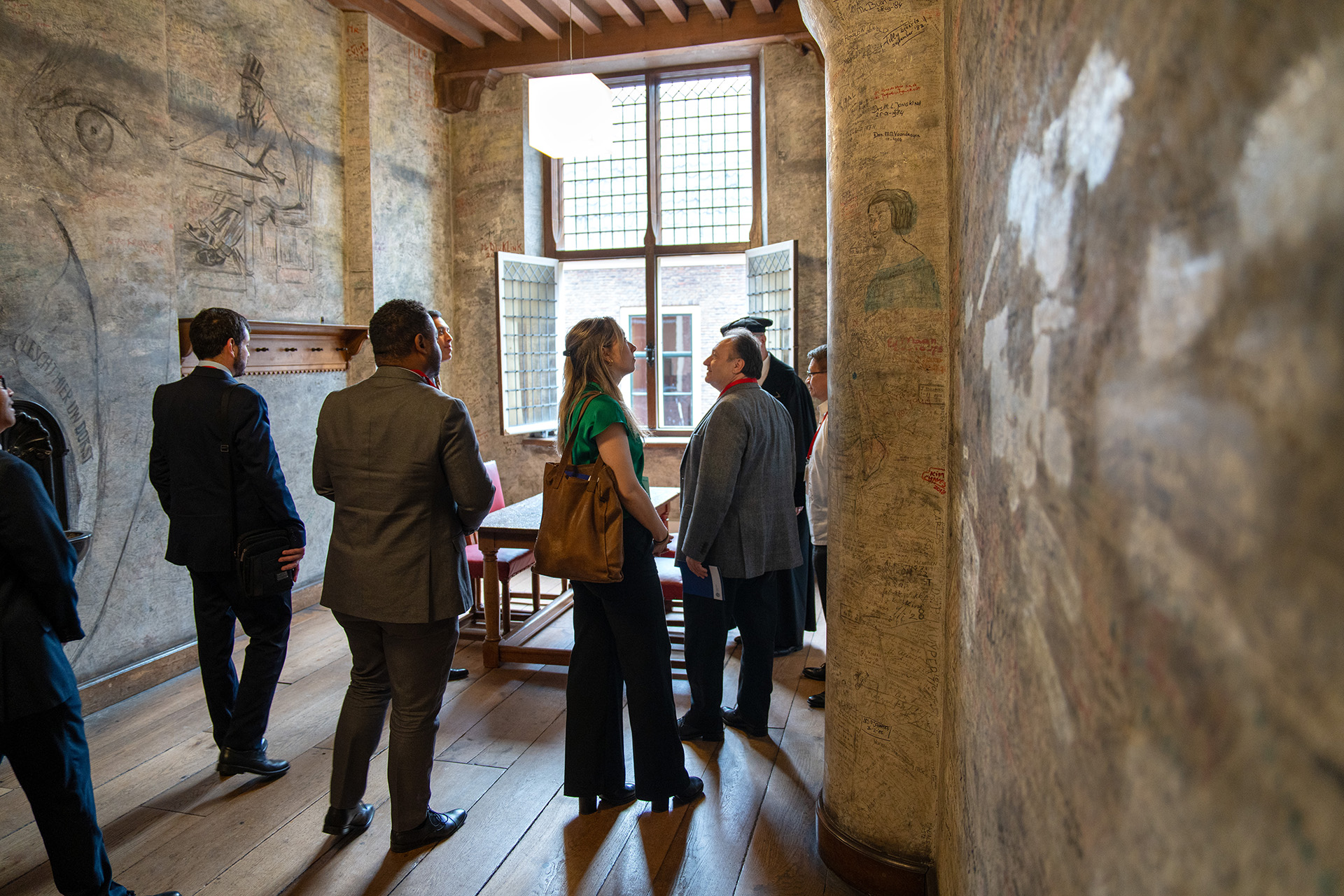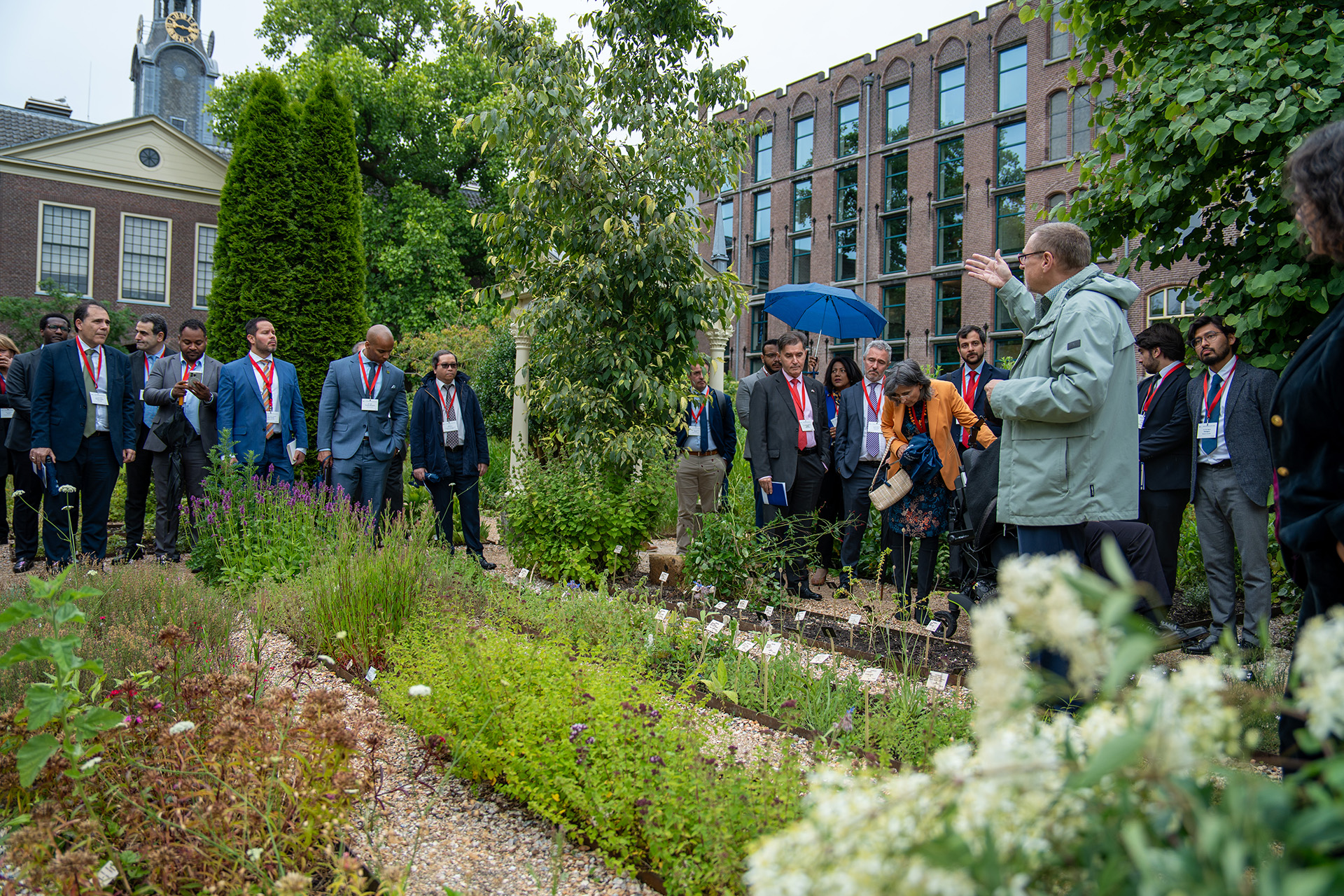
Ambassadors visit Leiden: ‘Knowledge knows no borders’
Over 30 ambassadors strengthened their ties with researchers and university leaders in a recent visit to Leiden University. Cross-border collaboration (both literal and figurative) was the theme of presentations and a tour of the Hortus botanicus.

‘International collaboration is crucial to knowledge development because it helps collect perspectives from the whole world’, said Annetje Ottow at the opening of this special afternoon. With an audience of more than 30 ambassadors and attachés from all corners of the globe, this did not fall on deaf ears. Ottow had some news to share: to cement these international ties the university plans to make this afternoon an annual event. ‘We are very fond of traditions so let’s make this a tradition. Go ahead and mark your calendars for June next year.’
Global challenges
Then Ottow outlined the university’s history and development and the emphasis on interdisciplinary research and teaching. Interdisciplinarity is when researchers from different disciplines work together across the borders of their own fields.
‘Research that involves different disciplines often delivers surprising and tremendously useful results’, said Ottow. ‘We need this type of research to tackle the global challenges of our time, such as climate change, biodiversity loss and geopolitical problems. These issues are too complicated for one discipline alone to resolve. So collaboration is needed, within the university and with partners outside. Because knowledge knows no borders.’

‘Knowledge for society’
Vice-Rector of Organisational Development Erwin Muller added to the picture painted by Ottow with an introduction to the activities at Campus The Hague, such as collaboration with citizens, diplomats and international and civil society organisations. ‘We pursue knowledge for society, not just for the sake of pursuing knowledge’, he said.
Muller also had a few questions for the ambassadors. ‘How can we strengthen our ties? How can we help embassy staff, for example? And what about Campus The Hague as a place for networking and knowledge exchange? You’ll find lots of young students with a mission there: to change the world.’ And everyone was invited to the opening of the new campus building at Spui in The Hague, he added.

Selfie
The group proved to be a dab hand at networking: ambassadors shook hands and the odd one took a selfie with Ottow. ‘Some of us are meeting for the first time’, said one ambassador. Then it was time to stretch those legs and two of the university’s gems: the Sweat Room and the Hortus botanicus. The group made a stop at the 16th-century Clusius garden. ‘A strong networker’, was Hortus director Paul Kessler’s description of Clusius, the founder of the beautiful bed of medicinal plants. ‘Clusius sent more than 2,000 letters to contacts all over the world asking for plants for the garden.’
‘Pretty unique’
‘Fantastic that the university is doing this’, said one ambassador soon after the walk. ‘That strong emphasis on interdisciplinarity, universities in my country don’t have that. I think it’s pretty unique. And I definitely see opportunities for collaboration, for example through Campus The Hague. That would be the ideal platform for meetings and exchanges with researchers from our country.’
Health, heritage and photos
In the Orangery the group was served even more examples of cross-border collaboration. Researcher Jessica Kiefte-de Jong spoke about the Population Health interdisciplinary research programme, which emphasises citizen engagement in health research to make it easier to treat or even prevent some diseases. Global cultural heritage research also received a mention and in the last presentation the guests were treated to an overview of the university library’s photo collections.
Then it was time for the guests to start strengthening their ties during the concluding networking drinks. Judging by the animated conversation and flurry of business cards, it could be concluded that that mission was more than successful.
Text: Jan Joost Aten
Photos: Danique ter Horst

